Vietnam National University of Agriculture (VNUA) cooperates with the United Nations Food and Agriculture Organization (FAO) to implement the global project “Strengthening capacities for nutrition - sensitive food systems through a multi-stakeholder approach (involving private sector, civil society organizations and academia)” (GCP/GLO/712/JPN). The project's objective is to increase education/training on nutrition- sensitive food systems in universities and training institutions, private enterprises and state agencies in the agricultural sector in Vietnam on the basis of using Japanese professional materials and FAO resources. The project's expectation is that people around the world have access to healthy nutrition diets supported by sustainable food chains.
With the above goal, after a number of surveys and workshops collecting opinions of relevant parties, VNUA decided to select the Advanced Crop Science program for pilot improvement towards developing nutrition- sensitive food system. After a year of pilot teaching, VNUA and FAO co-organized 02 workshops in 02 days from 27-28 April 2021: i) Finalization Workshop and National Seminar for Curriculum Dvelopment, ii) Workshop for Twinning Mechanism for Nationwide Adoption of the Enhanced Curriculum.
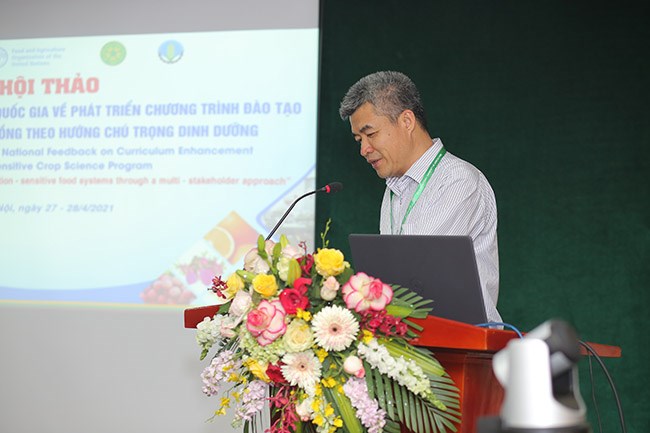
Vice President of VNUA, Mr. Pham Van Cuong, delivers the welcome speech.
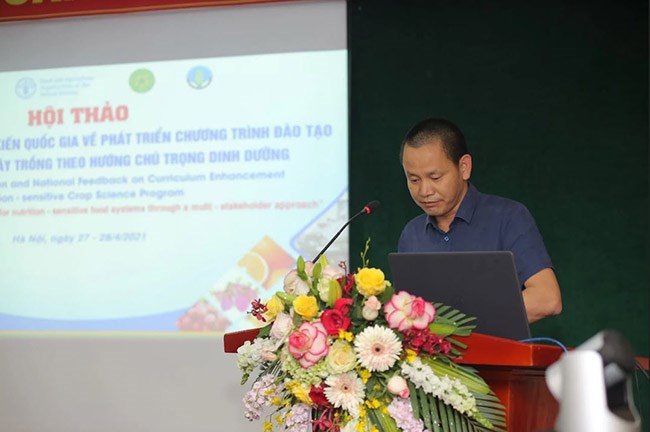
Mr. Hoang Van Tu from FAO VN gives the opening remarks
The workshops are the forum for participants to recognize the important role of training institutions in promoting a nutrition-sensitive food system framework, find out effective solutions to integrate nutrition-related contents in the crop science program and propose mechanisms to apply the nutrition-sensitive program in the agriculture universities and institutions.
The workshop appealed nearly 80 delegates who are staff and students directly teaching and studying in the field of crop science and food technology from 10 universities in Vietnam such as Bac Giang University of Agriculture and Forestry, Tay Bac University, Thai Nguyen University of Agriculture and Forestry, Hong Duc University, Vinh University, Can Tho University, Hue University of Agriculture and Forestry, Tay Nguyen University, An Giang University and Ho Chi Minh City University of Agriculture and Forestry. In addition, there were also representatives from domestic and foreign research and development organizations such as National Institute of Nutrition (NIN), Vietnam Academy of Agricultural Sciences (VAAS), and the Inertational Central for Tropical Agriculture (CIAT), Food and Agriculture Organization of the United Nations (FAO Vietnam participated in the offline workshop while the Central FAO participated via online application from Italy).
At the workshop, lecturers of VNUA had the opportunity to share their experience in the process of improving the curriculum of the nutrition-sensitive crop science program and the initial results from 05 experimental subjects (Plant breeding, Postharvest handling of horticultural crops, Farm management, Sustainable agriculture and Internship). Representatives of NIN - Deputy Director Mrs. Truong Tuyet Mai and CIAT Representative - Mrs. Pham Thi Mai Huong also shared information on the current status of the nutrition-sensitive food system being applied in Vietnam. The argumentative presentations brought about 2 current issues for the dynamic discussion: i) Opportunities and challenges for the food systems when applying nutrition-sensitive training programs and ii) Feasibility for the agriculture universities to apply VNUA’s experience.
These workshops were forums for officials and students of agricultural higher education institutions from different regions, from domestic and foreign agricultural research institutions and related organizations to meet and share experience, exchange and cooperate for mutual development. Representatives of universities had shared the current status of the crop science program, and shared their mutual desire to integrate the nutrition-related contents into this program (An Giang University, Tay Nguyen University, Thai Nguyen University of Agriculture and Forestry, ...) or launch a new major (Tay Bac University) with different approaches subject to the conditions of each school.
FAO representatives expressed confidence that the knowledge acquired through the training program shall have great impacts on stakeholders and make contribution to the transformation of the food system and continue to grow and spread in the future. FAO believes that students graduating from agricultural majors would join hands to transform the whole food system with a focus on nutrition, ensuring that all citizens have access to nutrition and food safety. FAO supported the ambition of other universities to apply the lessons learned from VNUA to develop their own programs with a nutrition-based approach.
For the master's program, the representative of NIN said that it was necessary to integrate nutrition issues such as meal balance, overweight, obesity, and the use of food to prevent diseases and improve our health. 10-20% of the curriculum contents were health-related, and graduate students shall need to study further in this regard and it was essential to research further on nutrition issues in the master program for a more comprehensive view. The Department of Health and Department of Agriculture should have a close connection that enables the community nutrition program to succeed.
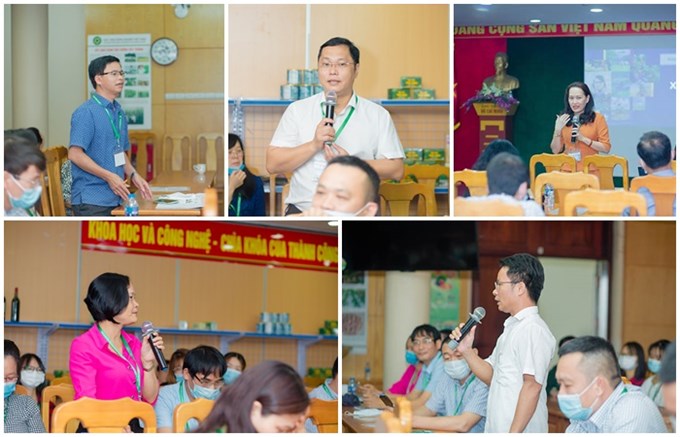
Some images about the discussions in the workshop
The workshop on review and feedback for the curriculum enhancement of nutrition-sensitive crop science program was sucessful with the message: the integration and enhancement of the nutrition-sensitive food system knowledge into the curriculum of VNUA and agriculture university in Vietnam is essential and it should be expanded. This is one of the practical activities towards the aim of eliminating malnutrition and developing a sustainable food system in Vietnam.
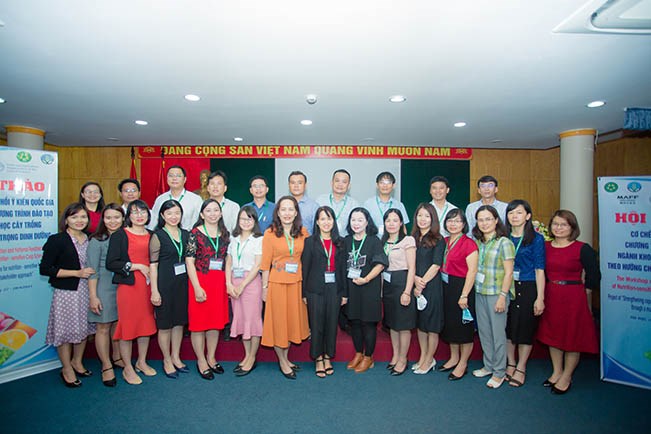
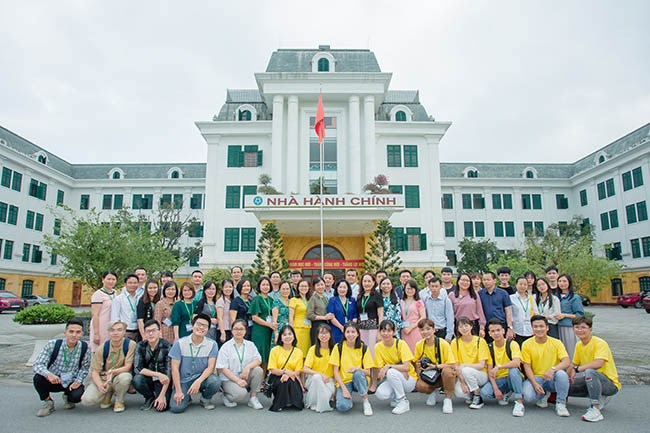
The delegates of the workshop took pictures in VNUA.
International Cooperation Office